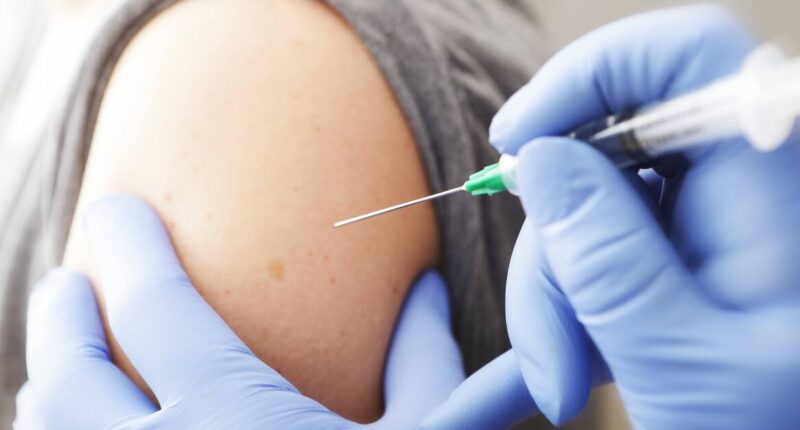Share this @internewscast.com
A new biannual injection designed to lower cholesterol levels could potentially transform heart healthcare, according to its developer. Known as Leqvio, or inclisiran, the medication has recently demonstrated in trials that it can help patients achieve their cholesterol goals more swiftly than existing therapies.
Additionally, patients using this treatment experienced reduced muscle pain, a frequent side effect associated with statins, another popular cholesterol-lowering drug. Cholesterol itself is a fatty compound produced by the liver and also found in certain foods.
It’s crucial to understand cholesterol’s dual nature, made up of two types: high-density lipoproteins (HDL), often referred to as ‘good cholesterol,’ and low-density lipoproteins (LDL), commonly known as ‘bad cholesterol.’
LDL cholesterol, which can be elevated by unhealthy lifestyle choices, is linked to severe conditions such as heart disease and strokes. Conversely, HDL cholesterol is associated with a lowered risk of these serious health issues and can be found in a variety of foods, including salmon, nuts, avocado, and legumes.
Currently, statins are the most widely prescribed medication by the NHS for managing high cholesterol, functioning by decreasing cholesterol production in the body. Typically, patients must take one pill every day indefinitely.
However, Leqvio, developed by Novartis, works by manipulating genetic material to reduce the production of a protein that escalates bad cholesterol levels. It is delivered through an injection, initially given, followed by a dose three months later, and then every six months.
Find out about the symptoms you need to watch out for and get health advice with our free health newsletter from the Daily Express
The Novartis trial, dubbed V-DIFFERENCE, involved 898 people who were given a Leqvio injection and a specific high-intensity statin, in addition to other medicines known as lipid-lowering therapies (LLTs) tailored to their personal needs.
Meanwhile, the other group of 872 patients received a placebo injection and the same high-intensity statin, along with other lipid-lowering therapies (LLTs) tailored to their needs. After 90 days, 85% of patients in the Leqvio group reached their cholesterol goal, whereas only 31% in the placebo group did so.
Ruchira Glaser, global head of the cardiovascular, renal and metabolic development unit at Novartis, said: “Novartis is dedicated to tackling the most challenging problems in cardiovascular disease. These results highlight the potential of Leqvio to transform cardiovascular care by improving meaningful patient outcomes.
“V-DIFFERENCE has provided evidence that early use of Leqvio is an effective way to help patients reach their LDL-C goals faster without the need to add other therapies or maximise statin doses.”
The study was also the first to examine Leqvio’s ability to reduce muscle pain, a common side effect of statins. It was discovered that patients on Leqvio were 43% less likely to experience muscle-related issues compared to the placebo group.
Ulf Landmesser, chairman of the department of cardiology, angiology and intensive care medicine at German Heart Centre of Charite and Charite University Medicine Berlin, said the trial is the first to focus on patient outcomes.
He added: “These findings are significant as they demonstrate effective options for lipid management improvement in patients at risk, a majority of whom continue to remain above recommended LDL-C levels.”
The latest NHS Health Survey for England estimates the proportion of adults with raised cholesterol was 53% in 2022, up from 43% in 2019. This was greater among women (56%), compared to men (49%).
The V-Difference trial’s findings are set to be presented at the European Society of Cardiology (ESC) Congress in Madrid.
What do ‘healthy’ cholesterol levels look like?
The NHS explains that ‘ideal’ cholesterol levels depend on individual factors such as age and health conditions. Nonetheless, a general guideline for healthy adults is to maintain the following levels:
- Total cholesterol: Below 5mmol/L
- HDL (good cholesterol): Above 1.0mmol/L for men or above 1.2mmol/L for women
- Non-HDL (bad cholesterol): Below 4mmol/L












